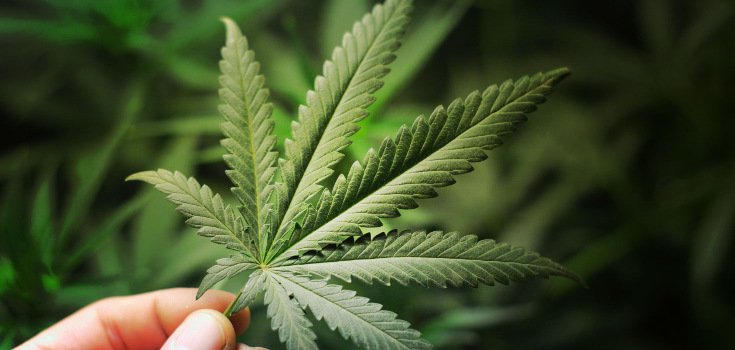‘Gold Standard’ Survey: Majority of Americans Want Marijuana Legalized

It is an undisputed fact that marijuana prohibition is losing traction at record speeds. If the influx of decriminalization, medical legalization, and recreational legalization bills tells us anything, it’s that the population is beginning to truly accept and even desire marijuana legalization. Now, a new ‘gold standard’ survey tells us that this notion is in fact true – finding that a majority of Americans support the legalization of marijuana for the first time in recent history.
For the poll, conducted by the General Social Survey – a national, ‘reliable’ survey conducted every two years and widely considered to represent the gold standard for public opinion – researchers asked 1,680 people whether they thought marijuana should be made legal.
The survey found that:
- 51.7% of respondents support the legalization of marijuana
- 41.7% said they opposed it
- 6.6% were undecided
“We’ve been measuring public attitudes toward legalization of marijuana since the ’70s,” Tom W. Smith, director of the GSS, said in an interview with Yahoo News. “In 2012, you had a plurality of Americans against legalization. Now, in 2014, you have a majority in favor of legalization.”

The Washington Post points out that while supportive votes have increased, the percentage of undecided respondents on the question of marijuana has been relatively high over the past decade.
“It shows how attitudes are in flux. They’re just not sure,” Smith said. “They might think medical marijuana is OK but not further than that.”
Read: Poll – 70% of Americans Support Medical Marijuana
Though we’ll likely continue to see an increase in individuals that believe in decriminalizing and legalizing marijuana, the ‘undecided’ opinions may be swayed to the ‘anti-marijuana’ side if things don’t pan out well in states where recreational marijuana is legalized – Colorado, Washington, Alaska, the District of Columbia, and soon Oregon.
But so far, it seems that the legalization has had more benefit than negative impact, creating tens of millions of dollars in tax revenue, creating thousands of jobs, and having little noticeable impact on communities in terms of abuse and crime.
Back in 1973, only 19.2% of Americans supported legalization. In 1987, it bottomed out at 15.6%. Ever since then, support for legalization has generally climbed steadily.
Morgan Fox, communications manager for the Marijuana Policy Project, says that Americans are tired of laws that punish adults for enjoying a substance that many argue is safer than alcohol.
“Hopefully their elected officials are paying attention and preparing for the inevitable,” Fox said in a statement. “The failures of marijuana prohibition are too obvious to ignore forever, which is evidenced by the growing support for ending it.”
5 Other Polls and Their Findings on Legalization Views
- A 2013 Gallup poll indicated majority support (58%) for legalization of marijuana for the first time ever. Around this time, Portland, Maine and 3 cities in Michigan (Ferndale, Jackson, and Lansing) all voted to legalize recreational marijuana.
- During a time when medical marijuana was legal in some form in at least 20 states, a February, 2014 poll found:
- 70% favor medical marijuana and only 17% oppose it
- 51% favor marijuana legalization and 34% oppose
- In states where medical marijuana is not legal, two-thirds want it legalized
- In states where medical marijuana is legal, 64% want lawmakers to do away with prohibition altogether
- In states where recreational marijuana is legal (Colo. and Wash.), 79% are happy with how the law stands

- According to a 2016 Gallup poll, 60% of Americans supported marijuana legalization – a new record high. The data came less than 3 weeks before voters in 9 states decide on whether to expand legal access to pot. Previous Gallup found support of:
- 12% in 1969
- 28% in the late 1970’s
- Low- to mid-20’s throughout much of the 80’s and 90’s (the federal war on drugs was at its height)
- 31% by 2000
- 58% in 2015
- A 2017 survey by Yahoo News and The Marist Poll found 83% approved of legalizing marijuana for medical treatment,
What are your feelings toward marijuana legalization?

I say that is BS. Who did they ask? They certainly didn’t ask me or the people I know. We would say Heck NO! I have no problem in making it legal for people with severe medical problems, but certainly not for everyone!!!